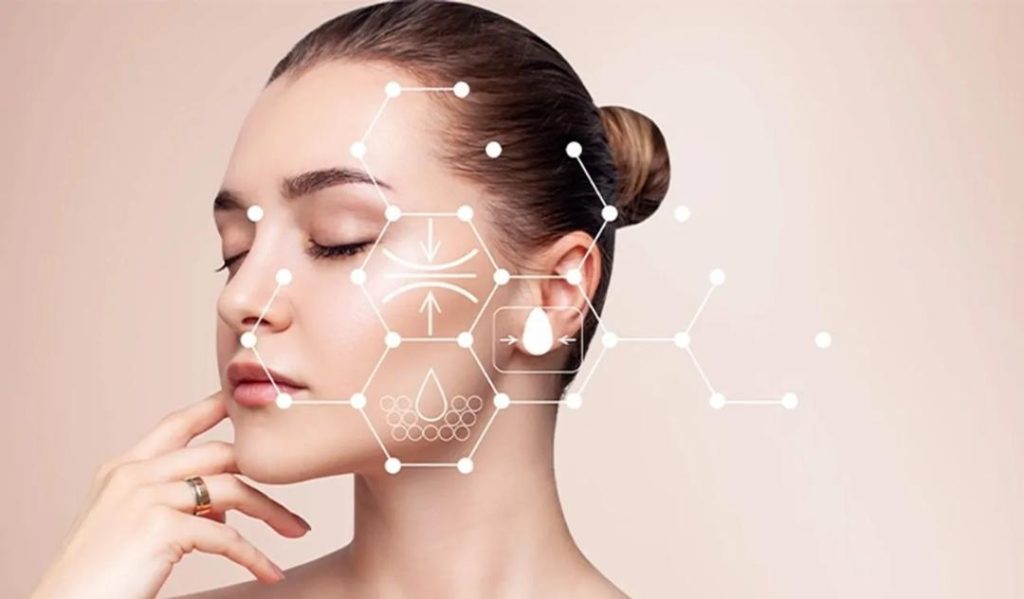
How AI & Innovation are Redefining the Beauty and Wellness Landscape
The beauty and wellness industry has undergone a significant transformation in recent years, driven by advances in technology, shifting consumer preferences, and a growing emphasis on inclusivity and personalized solutions. The skincare industry, in particular, has seen a dramatic evolution, moving from basic routines to a realm of cutting-edge innovation, personalized products, and a focus on overall wellness.
As we look ahead to 2025, skincare trends reflect a deeper understanding of diverse skin needs, a commitment to wellness, and a harmony between science and nature. In this blog post, we’ll explore how AI and innovation are redefining the beauty and wellness landscape, and what this means for consumers.
The Rise of Personalized Skincare
One of the most significant shifts in the skincare industry is the move towards personalized solutions. Gone are the days of one-size-fits-all products; instead, consumers are demanding products that are tailored to their unique skin type, concerns, and needs.
AI-powered skincare platforms are playing a key role in this shift, using machine learning algorithms to analyze individual skin profiles and recommend customized skincare routines. These platforms can analyze a range of data points, including skin type, tone, and concerns, as well as lifestyle factors such as diet, stress levels, and sleep patterns.
For example, AI-powered skincare platform, Neutrogena’s Skin360, uses AI to analyze a user’s skin and provide personalized product recommendations. The platform takes into account a range of factors, including skin type, concerns, and goals, to recommend a customized skincare routine.
Inclusivity and Diversity
Another significant trend in the skincare industry is a growing emphasis on inclusivity and diversity. The beauty industry has historically been criticized for its lack of diversity, with many products and campaigns catering to a limited range of skin types and tones.
However, in recent years, there has been a shift towards greater inclusivity, with brands launching products that cater to a wider range of skin types and tones. This shift is driven in part by the growing demand for diverse representation in the beauty industry, as well as a recognition of the importance of diversity in driving innovation and creativity.
AI-powered skincare platforms are also playing a key role in promoting inclusivity, by providing products and recommendations that cater to a range of skin types and tones. For example, AI-powered platform, ModiFace, uses AI to analyze a user’s skin and provide personalized product recommendations, taking into account their skin type, tone, and concerns.
Cutting-Edge Innovation
The skincare industry is also seeing a surge in cutting-edge innovation, driven by advances in technology and a growing emphasis on wellness. From nanotechnology to biotechnology, the industry is incorporating a range of innovative ingredients and delivery systems to create more effective and efficient products.
One example of this is the use of nanotechnology to deliver active ingredients deep into the skin. Nanoparticles can be used to encapsulate active ingredients, such as retinol or vitamin C, and deliver them directly to the skin, reducing waste and increasing efficacy.
Another example is the use of biotechnology to create more sustainable and eco-friendly products. Biotechnology can be used to create products that are gentler on the skin, while also reducing the environmental impact of the beauty industry.
AI-Powered Skincare Devices
AI-powered skincare devices are also becoming increasingly popular, offering consumers a more personalized and effective skincare routine. These devices use AI to analyze a user’s skin and provide personalized product recommendations, as well as customized skincare routines.
One example of this is the AI-powered skincare device, Neutrogena’s Light Therapy Mask, which uses AI to analyze a user’s skin and provide personalized product recommendations. The device uses LED light technology to target specific skin concerns, such as acne, fine lines, and hyperpigmentation.
The Future of Skincare
As we look ahead to 2025, the skincare industry is likely to continue to evolve, driven by advances in technology, shifting consumer preferences, and a growing emphasis on wellness. AI-powered skincare platforms, personalized products, and cutting-edge innovation are likely to continue to play a key role in shaping the industry.
However, it’s also important to recognize the potential challenges and limitations of these trends. For example, AI-powered skincare platforms rely on data and algorithms, which can be biased and inaccurate. Additionally, the emphasis on personalized products and cutting-edge innovation can create a culture of disposability and waste.
Conclusion
In conclusion, the skincare industry is undergoing a significant transformation, driven by advances in technology, shifting consumer preferences, and a growing emphasis on wellness. AI-powered skincare platforms, personalized products, and cutting-edge innovation are just a few of the trends that are shaping the industry.
As we look ahead to 2025, it’s clear that the skincare industry will continue to evolve, driven by a growing demand for personalized solutions, inclusivity, and wellness. By embracing these trends and recognizing their potential limitations, we can create a more sustainable and effective skincare industry that benefits both consumers and the planet.
Source:
https://www.shethepeople.tv/author-spotlight/guest-contributions/skincare-trends-for-2025-8728129






